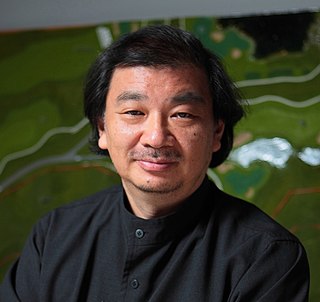A Quote by Shigeru Miyamoto
Japanese people have a funny habit of abbreviating names.
Related Quotes
I don’t think it should be socially acceptable for people to say they are “bad with names.” No one is bad with names. That is not a real thing. Not knowing people’s names isn’t a neurological condition; it’s a choice. You choose not to make learning people’s names a priority. It’s like saying, “Hey, a disclaimer about me: I’m rude.
As well as Japanese animation, technology has a huge influence on Japanese society, and also Japanese novels. It's because before, people tended to think that ideology or religion were the things that actually changed people, but it's been proven that that's not the case. Technology has been proven to be the thing that's actually changing people. So in that sense, it's become a theme in Japanese culture.
Ecclesiastes names thee Almighty, the Maccabees name thee Creator, the Epistle to the Ephesians names thee Liberty, Baruch names thee Immensity, the Psalms name thee Wisdom and Truth, John names thee Light, the Book of Kings names thee Lord, Exodus names thee Providence, Leviticus Sanctity, Esdras Justice, creation names thee God, man names thee Father; but Solomon names thee Compassion, which is the most beautiful of all thy names.
I am by nature not a list-keeper, but I do keep lists of names and add at least one or two every single day without exception. First names, last names, middle names, combinations of. I've collected more over the years than I can possibly ever use in a single lifetime, but I keep the list going nonetheless. I tell my students that it's a habit, an act of attention, that will keep them engaged, keep them thinking about characters and stories, and how that match might get made.
I like ones that pertain to the music they make. Talking Heads does that somehow. More often than not band names are just a quirky joke that doesn't really stay funny for very long. It's like Homer Simpson's barbershop quartet, the Be Sharps. At first you're like, 'That's funny!' Then you're like, 'It's not that funny.'
It's pretentious to say, but my art is like a little Zen story, a story with a question mark at the end. People can take from it what they need. If somebody says, "Your art is very funny," I say, "You are totally right." If somebody says, "Your art is very sad," I say, "You are totally right." In Japan they say, "Your art is very Japanese, you even look Japanese.Your great-grandfather was most surely a Japanese man." And I say, "You are totally right."








































